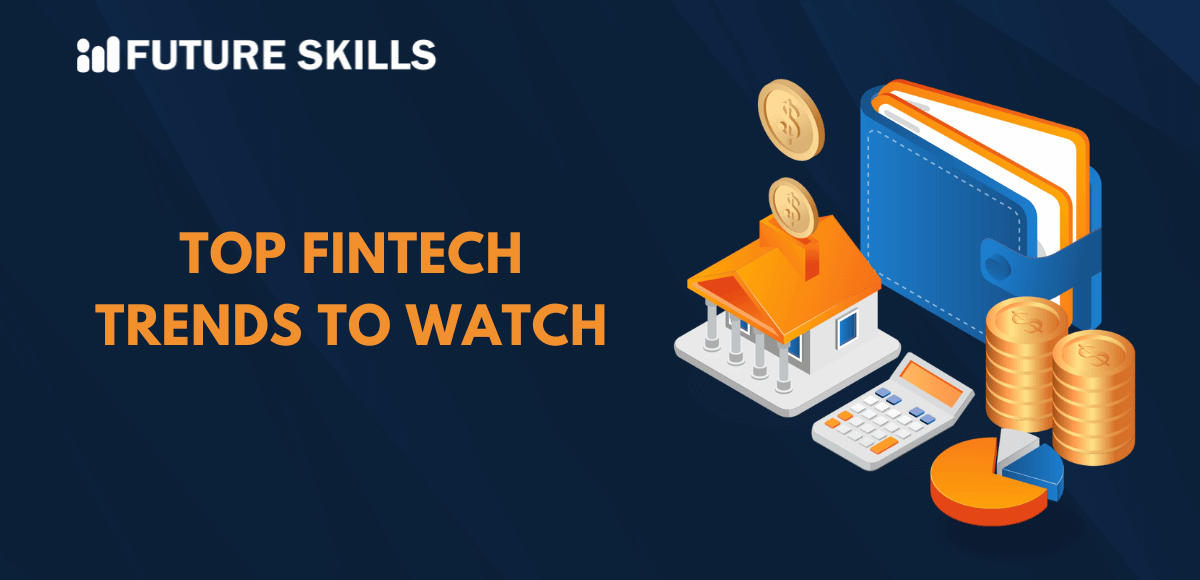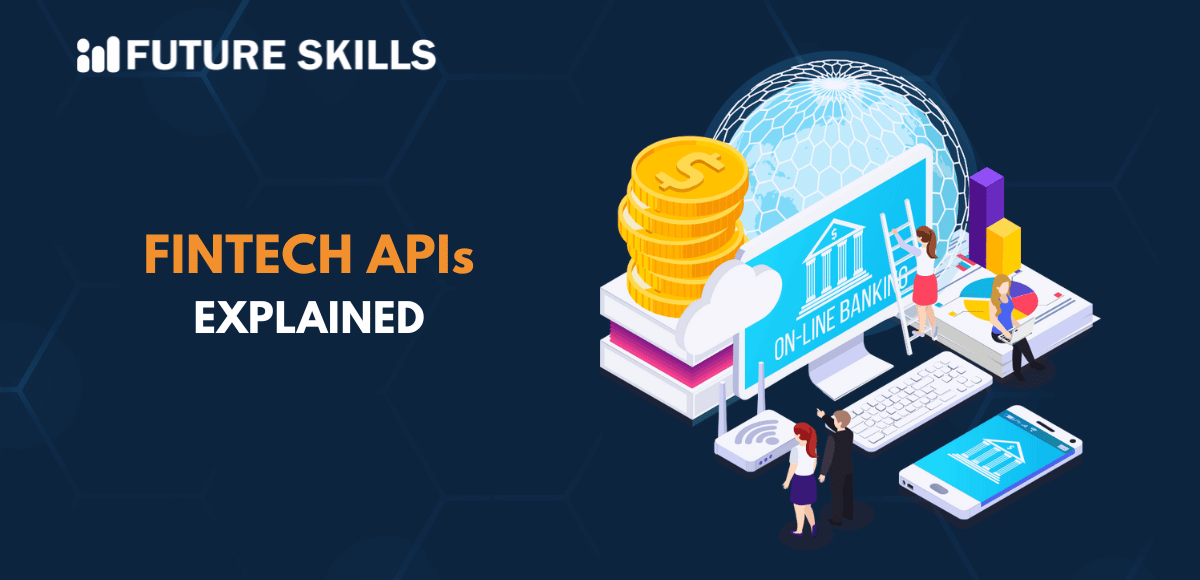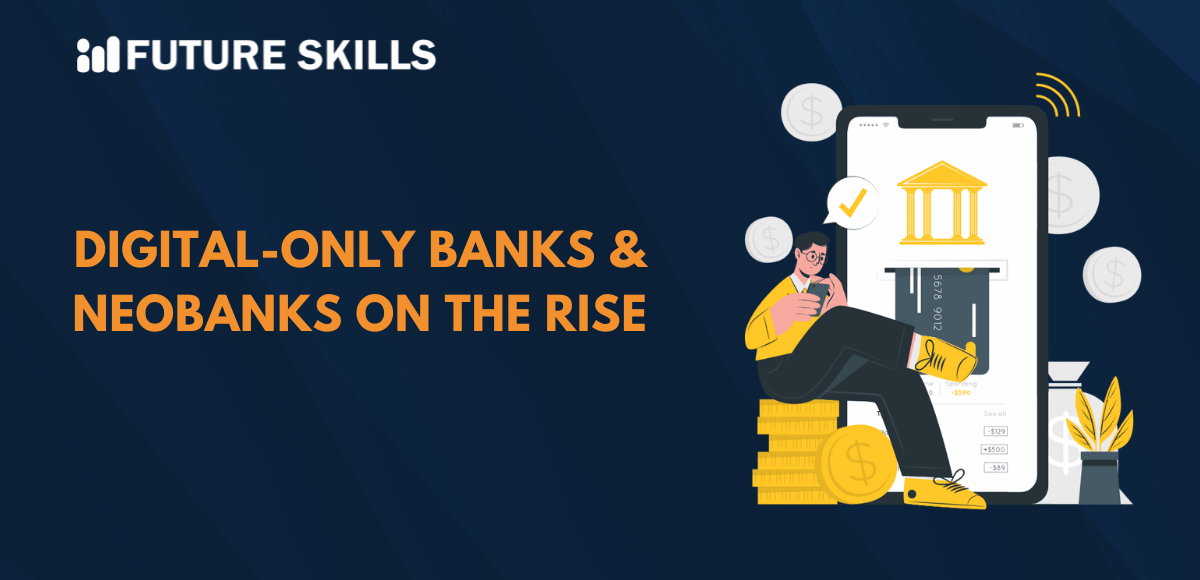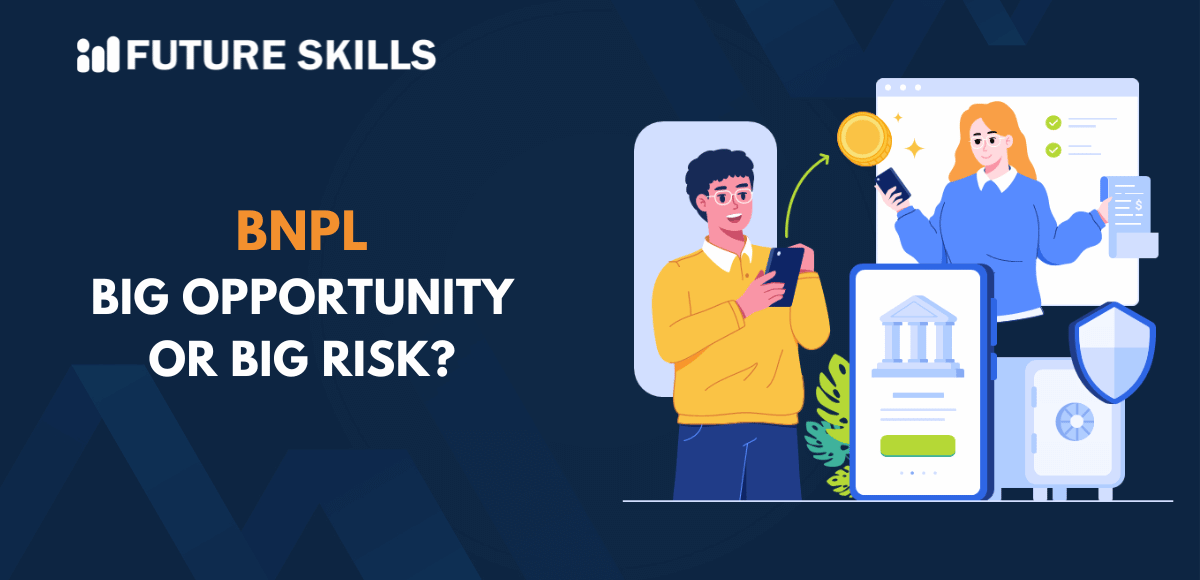The fintech industry has been a beacon of disruptive innovation as its evolution has led to the rapid transformation of finance. In the past, fintech trends have created massive waves of change in the industry that have led to new opportunities for businesses and professionals. Businesses identified the latest fintech trends and used the power of technologies such as blockchain and big data analytics to boost their performance. On the other hand, professionals discovered new job prospects with emerging fintech trends or new ways to perform better in existing roles in finance.
Staying updated with the latest trends and new updates is crucial to adapt in any industry. Awareness of new trends plays a vital role in boosting your preparedness for unprecedented changes in the domain of fintech. Apart from the technology trends, industry trends also play a major part in defining the future of the fintech ecosystem. Let us learn about the most impactful fintech trends that you should watch out for in 2025.
Understand how fintech is revolutionizing finance and develop a career with our Fintech Certification Program. Enroll now!
Biggest Trends that Will Rule the Future of Fintech
The rapid growth trajectory of fintech highlights the effect of new technological advancements and changes in consumer behavior. For example, blockchain provided the ideal foundation to build fintech solutions that people could use without intermediaries like banks.
Decentralized finance or DeFi emerged as the new face of finance solely due to the disruptive impact of technological advancements. An industry that is expected to be worth more than $550 billion by 2030 might bring many new surprises. The following fintech trends will stand out as the biggest highlights for the industry in 2025.
-
Artificial Intelligence Becomes a Personal Financial Advisor
Artificial intelligence might be one of the key technologies that have built fintech as we know it. Interestingly, the utility of AI in fintech will no longer be restricted within walled gardens. One of the top fintech trends that have been gaining momentum is the adoption of AI tools for financial advice and asset management. You will see more AI-based financial advisors in the market with enhanced utility and accuracy that will transform personal finance management. The primary strength of AI-powered financial management tools is the accurate assessment of user spending patterns and goals.
The popularity of AI-based financial planning and asset management solutions will increase as users recognize their efficiency in different use cases. For instance, an AI tool can provide intelligent predictions for investment according to financial status, risk tolerance, and goals. You can also leverage AI solutions to give updated recommendations for investment with changing market conditions. AI-based financial advisory tools with features for budgeting and debt management can help in settling your loans faster without leaving any essential expenses.
Enroll now in the AI and Fintech Course to familiarize yourself with the best practices for implementing AI and fintech solutions.
-
Quantum Computing Will Make Fintech Faster
Quantum computing is the next frontier of computing that will change many conventional notions about the efficiency of computing systems. The unique design of quantum computers empowers them to solve extremely complex problems faster than traditional computers. Even in the initial stages of development, quantum computing outperforms traditional computing systems by a huge margin. Quantum computing is likely to be among the future trends in fintech that will completely change the industry. On top of it, quantum computing has the potential to revolutionize financial services across different sectors like healthcare and logistics.
The top use cases of quantum computing in fintech right now will give you a clear idea of its significance. One of the notable areas where quantum computing can revolutionize fintech is risk management. Quantum computing algorithms can help with the analysis of massive datasets to predict optimized investment portfolios with more accurate risk assessments. The other notable use cases of quantum computing in fintech include high-frequency trading and fraud detection. Businesses can leverage quantum computing to achieve better security, faster processing, and improved decision-making capabilities.
-
Embedded Finance Grows its Roots
Embedded finance is another notable trend that will have a formidable impact on the fintech industry. The primary concept of embedded finance revolves around seamless integration of financial solutions in non-financial products or applications, such as websites and mobile apps. The answers to “What is the latest fintech trend?” point at embedded finance as one of the top picks because it introduced a seismic shift in financial services industry. Embedded finance allowed customers to access financial services directly on any platform without the intervention of traditional banks.
You must know that the embedded finance market might cross the $7 trillion mark by 2030. What exactly has been driving the sporadic growth of embedded finance? Embedded finance rides heavily on the shoulders of financial services like insurance, payments and lending services. You can expect embedded finance to grow bigger in 2025 with more companies harnessing the power of fintech to deliver personalized financial services. Companies can not only improve the customer experience but also achieve significant improvements in ROI with better client retention.
-
Generative AI Turns into a Big Deal for Fintech
Most people believe that generative AI tools only help in seeking answers for homework or generating ideas for various tasks. Generative AI can serve as one of the most versatile solutions in the domain of fintech for performing different tasks like credit scoring, fraud detection, and asset management. As a matter of fact, the adoption of generative AI has become one of the notable fintech industry trends, with financial services companies using it in different scenarios. For example, generative AI is a useful tool for credit risk assessment as it can ensure a comprehensive assessment of historical trends, spending patterns, transaction data, and other client information.
The use cases of generative AI in fintech also encompass algorithmic trading and fraud detection. Generative AI can analyze real-time market conditions and trends to provide accurate predictions and recommendations for trading. On top of it, generative AI models can also identify unusual patterns associated with fraudulent activities. Another promising implication of embracing generative AI in fintech is the support for advanced regulatory compliance. Financial services companies can use generative AI to ensure compliance with relevant regulations and reduce the risk of penalties.
Level up your AI skills and embark on a journey to build a successful career in AI with our Certified AI Professional (CAIP)™ program.
-
RegTech Brings New Definition of Risk Management
Another prominent trend that will dominate the fintech ecosystem in 2025 is RegTech, the subdomain of fintech that deals with regulations. It might be easily one of the best fintech trends that will have a long-lasting impact on the industry. How will RegTech affect the future of fintech? It is important to note the growing concerns around regulatory requirements in fintech and the challenges that come with them. Some of the notable regulatory requirements include Know Your Customer and Anti-Money Laundering, or KYC and AML.
RegTech helps businesses in maintaining compliance with the KYC and AML laws with innovative solutions. One of the foremost strengths of RegTech is the assurance of finding a way through all the complexity to ensure faster and smarter compliance. At the same time, companies will also seek new benchmarks to choose RegTech solutions because compliance failure can damage their reputation.
-
New Regulations Might Come Forward
The growth of the fintech industry calls for better standards of transparency, compliance, and security alongside the changing regulations. If you think again, innovative RegTech solutions have become the need of the hour due to emerging regulations. Among the many fintech industry trends that have been prevailing every year, the expectation for new regulations is still the same. Which regulations will have a significant influence on fintech operations in 2025?
The first regulation in 2025 that will affect fintech is the AI Act. The AI Act will focus on monitoring the risk associated with AI applications in fintech. Fintech companies that have been using AI should maintain comprehensive risk management systems, comprehensive documentation, and data governance policies. Another fintech regulation that you can expect in 2025 is PSD3, which focuses on better client authentication and fraud detection. PSD3 will also ensure better data protection and reporting standards.
Familiarize yourself with the fundamentals of fintech and their impact on financial services with our unique Fintech Course. Get started today!
What are the Other Prominent Fintech Trends for 2025?
The most noticeable fintech trends that will have a great time in 2025 are only the tip of the iceberg. You can try harder to find answers to “What is the latest fintech trend?” and won’t end up with disappointment. The fintech industry will bring many other trends to the limelight, such as,
- Fintech companies can expect renewed optimism from investors that will boost innovation.
- Open banking initiatives will continue the gold run with new technologies making operations smoother, more streamlined, and faster.
- AI will play a crucial role in creating hyper-personalized experiences.
Final Thoughts
The fintech industry is shaping up to be the new gateway to financial services, where people don’t have to rely on traditional institutions. Many trends in the fintech space, such as DeFi, have shown that the blend of technology and finance can enhance productivity, efficiency, and user experience. The review of the latest fintech trends shows that 2025 is a promising year for the industry, with new regulations expected to make a mark. Fintech will continue to tap into the value of technologies like AI and quantum computing to prepare for the future. On top of it, the fintech industry will witness new and innovative RegTech solutions alongside maintaining focus on embedded finance. Learn more about fintech fundamentals and discover new insights on the industry right now.






